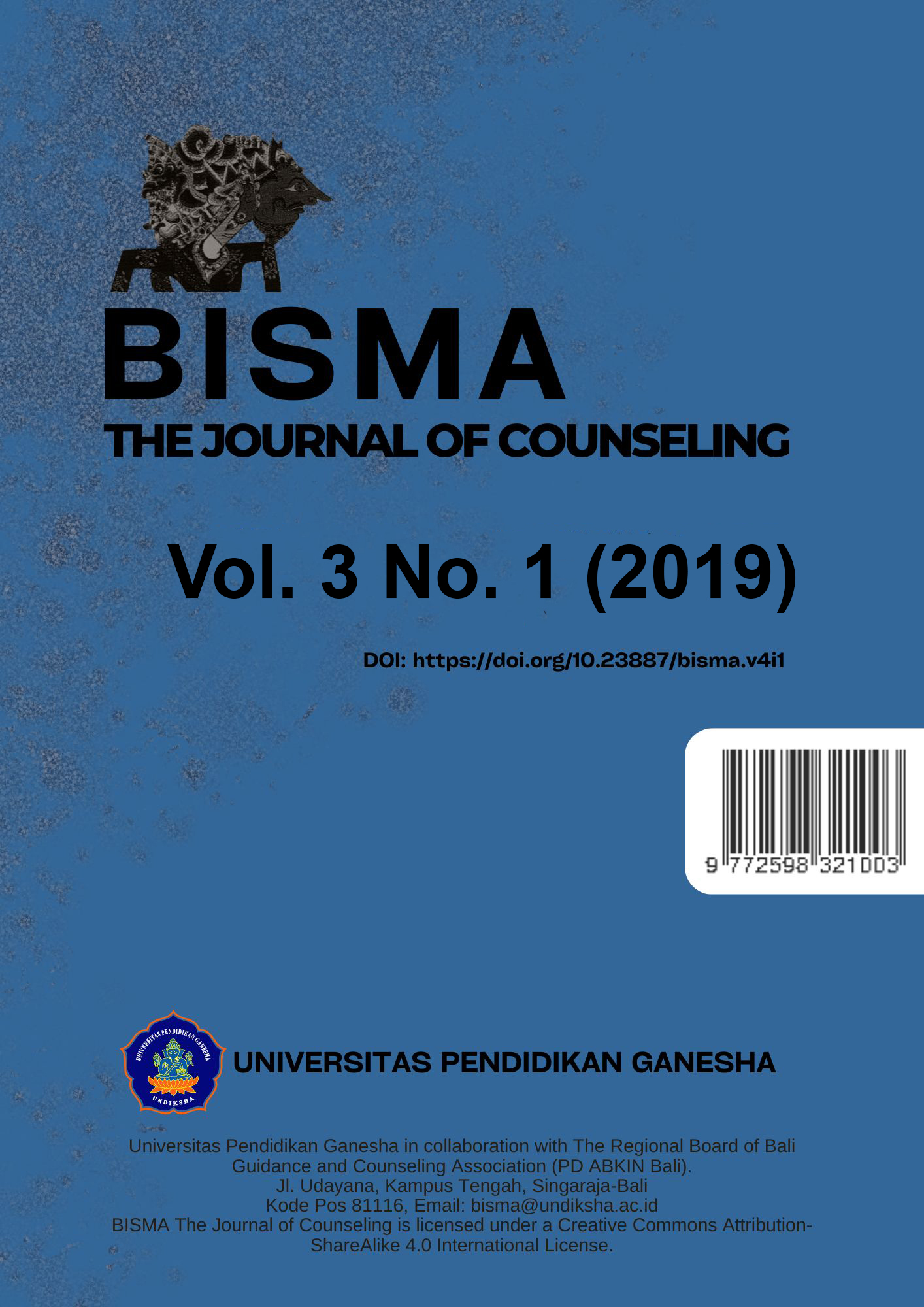The Effectiveness of The Symbolic Modeling Technique for Intervening the Low Promiscuity of Students
DOI:
https://doi.org/10.23887/bisma.v3i1.17910Keywords:
Opposite Sex Friendship, Symbolic Modelling Technique, StudentAbstract
The low attitude of class XI Accounting at Prshanti Nilayam Vocational School in terms of association with the opposite sex needs special attention from the school. This can disrupt the development of students in terms of social relations and readiness to lead adult life. One effort that can be done is through counseling services provided by counselors at the school. In this study, modeling techniques were applied to intervene in students' attitudes in getting along with the opposite sex. The purpose of this study was to determine the level of effectiveness of treatment through modeling techniques for students who have low opposite sex relationships. The sample in this study amounted to 22 students where it was determined by purposive random sampling technique. The data analysis technique used is the t test. The results of the t test are known that the tcount> t table is 3.789> 2.073, so that it is known that there are differences in students' self-heterosexual scores before and after the treatment. Furthermore, the effectiveness test results are ES = 0.8 (Very High). So it can be concluded that modeling techniques are effective for developing attitudes with the opposite sex in students
References
Apriliana, I. P. A., Suranata, K., & Dharsana, I. K. (2019). Mereduksi Kecemasan Siswa Melalui Konseling Cognitive Behavioral. Indonesian Journal of Educational Counseling, 3(1), 21-30.
Apriliana, I. P. A., Dharsana, I. K., & Lestari, L. P. S. (2016). Perbedaan Efektivitas Teknik Permainan Melebih-Lebihkan dengan Teknik Kursi Kosong Model Konseling Gestalt terhadap “Self-Order” Siswa Kelas X SMA Negeri 1 Singaraja. Jurnal Ilmiah Bimbingan Konseling Undiksha, 4(1).
Colledge, Ray. (2002). Mastering Counselling Theory. New York: Palgrave Macmillan
Dharsana, Ketut. (2013). Teori-Teori Konseling (Diktat). Singaraja: Jurusan Bimbingan Konseling Fakultas Ilmu Pendidikan Universitas Pendidikan Ganesha.
Dharsana, Ketut. (2014). Dasar-dasar Bimbingan Konseling. Singaraja: Jurusan Bimbingan Konseling Fakultas Ilmu Pendidikan Universitas Pendidikan Ganesha.
Dharsana, Ketut. (2014). Model-Model Teori, Teknik, Skill Bimbingan Konseling. Singaraja: Jurusan Bimbingan Konseling Fakultas Ilmu Pendidikan Universitas Pendidikan Ganesha.
Dharsana, Ketut. (2017a). Pengembangan Pribadi Konselor. Singaraja: Jurusan Bimbingan Konseling Fakultas Ilmu Pendidikan Universitas Pendidikan Ganesha.
Dharsana, Ketut. (2017b). PAPTT; Praktikum Asessmen Pasikologi Teknik Tes. Singaraja: Jurusan Bimbingan Konseling Fakultas Ilmu Pendidikan Universitas Pendidikan Ganesha.
Peraturan Menteri Pendidikan dan Kebudayaan Republik Indonesia Nomor 111 Tahun 2014 tentang Bimbingan dan Konseling pada Pendidikan Dasar dan Menengah
Lesmana, Jeanette Murad. (2013). Dasar-Dasar Konseling. Jakarta: Universitas Indonesia (UI-Press)
Sukitman, Tri. (2015). Bimbingan Konseling berbasis Pendidikan Karakter. Yogyakarta: DINA Press (Anggota IKAPI)









